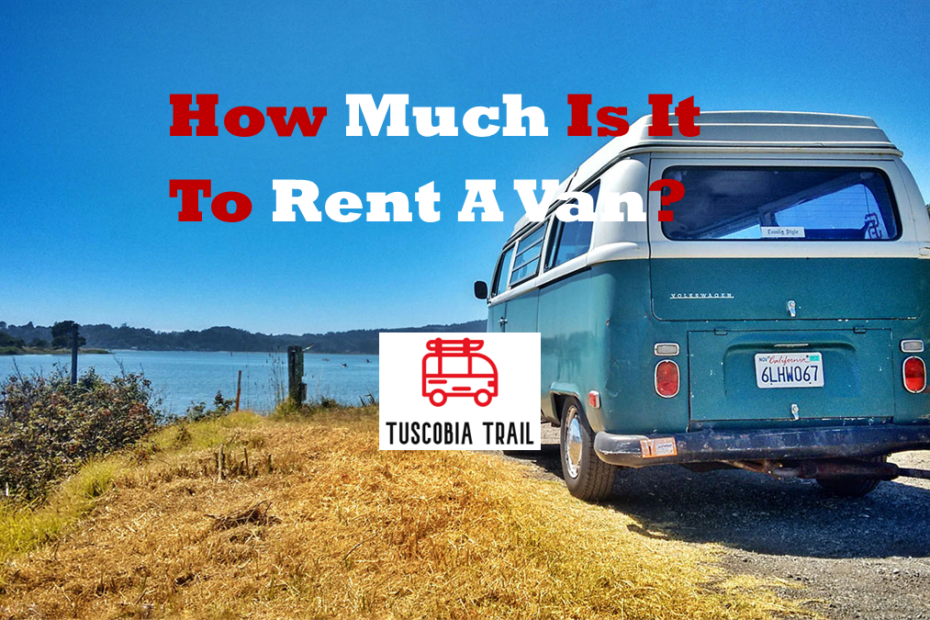Renting a van for van life presents a flexible and often more economical alternative to buying, especially if you’re testing the waters of a nomadic lifestyle. But how much is it to rent a van?
Renting rather than buying a van avoids the long-term financial commitment and maintenance costs associated with ownership.
While the upfront cost to rent a van can be higher than a car, the benefits of space, freedom, and mobility can outweigh the costs, particularly for those seeking adventure without the permanence of purchasing a vehicle.
Understanding Rental Costs for Vans in the United States
When you rent a van, the available van options at your selected pickup and drop-off locations will influence your rental cost.
Rental agencies and companies offer a range of vans to suit different needs, and these options are subject to location and availability.
Always start your reservation process early to secure the best rates and ensure the vehicle that meets your trip’s requirements is ready for you.
Plus, it’s a good idea to remember that different companies offer varying costs. Don’t settle for the first offer you find – compare rates from other car rental companies.
Look out for discounts, offers, membership benefits, and coupon code options to get even more bang for your buck. For instance, Avis offers the Avis Preferred program, allowing members to save more.
Select Vehicle Size and Type
The type of vehicle you choose to rent will significantly affect the price. From a compact cargo van for singles to large all-wheel drive rental vans resembling moving trucks for off-road adventures, rental locations across the United States offer a variety.
Enterprise Rent-A-Car, for instance, provides a range of options, including truck rental for heavier loads. When you rent a car, consider the size and capabilities you need for your journey.

Rental Duration
Rental costs are also influenced by how long you need the vehicle. A day’s rental for a 15-passenger van for family vacations might cost less per day than a shorter rental period.
Similarly, cargo vans may offer better rates for longer-term rentals, making them more economical for extended road trips or moving projects.
Location and Availability
Your experience with companies for rental cars and vans can vary by location. Rental locations across the United States have varying fleets and availability, which can impact pricing. For instance, luxury car or truck rental in rural areas may be more expensive due to lower availability.
Types of Vans for Van Life
You can pick from four common types of vans when choosing the right van for van life.
Minivan Rentals: 7 to 8 Passenger Minivan
Minivans are the quintessential choice for comfort and convenience on family road trips or group outings. They typically seat 7 to 8 passengers and offer a blend of space and maneuverability.
The rental cost for a minivan can range from $50 to $150 per day, influenced by factors like rental duration, location, and seasonal demand. When you rent a minivan, you’re investing in a versatile vehicle that caters to both your passengers’ needs and your budget.
Passenger Van Rentals: More than 7 Passenger Minivan
Passenger vans are just like minivans but accommodate more people at a time. If you are in a large group and want a cost-friendly option, choose a passenger van when making a car selection. Passenger vans, such as the spacious 15-passenger models, are ideal for larger groups and team outings.
These rental vehicles offer plenty of space for passengers and luggage alike, providing a practical alternative to bus rentals. Rental costs for passenger vans can range from $100 to $300 per day, varying by rental locations and the specifics of your reservation.
Cargo Van Rentals
Cargo van rentals, like the Chevrolet Express Cargo, are perfect for moving or transporting large items. With expansive storage space and robust performance, these vans are designed for utility.
Rental costs can range from $75 to $200 per day, depending on the pickup and drop-off locations, vehicle options available, and the rental duration.
Renting a van that aligns with your cargo needs to ensure a smooth and efficient move. Unfortunately, cargo vans and moving trucks are impractical when it comes to van life as they limit utility. However, depending on the rental car’s policy, you can make some DIY or professional conversions for long-term rental.
RV, Camper Van or Motorhome Rentals
For those who crave a home on wheels, RVs, camper vans, and motorhomes offer unparalleled freedom. Ideal for family vacations or long-term travel, these vehicles range from compact campers to luxurious motorhomes, capable of accommodating up to 15 passengers.
Rental prices vary greatly based on size and amenities, starting from around $100 per day to upwards of $250, offering a range of options to fit your adventurous spirit and budget.

The Rental Process Explained
Navigating the rental process can be straightforward. Start by determining your needs, then explore the available options. Next, you’ll secure your reservation, often through an online booking system, and finally, pick up your van. We’ll guide you through each step to ensure a seamless experience.
Making Your Reservation
Ready to book your van? The reservation process is simple. Start by selecting your van type, pick-up location, and rental dates. Whether you are planning a cross-country trip or extended rental duration, companies offer various car rentals to suit your specific needs. You can even book online.
Required Documentation for Van Rental: Driver and Credit Requirements
Before hitting the road, ensure you have the proper documentation for van rental. Typically, you’ll need a valid driver’s license, a credit card in the driver’s name, and proof of insurance. Some companies may also require a second form of identification, so check with your rental agency ahead of time to avoid any hiccups.
Understanding Rental Terms and Policies: View Details Carefully
It’s crucial to read and understand the rental terms and policies before signing the agreement. Pay attention to mileage limits, fuel policies, and additional fees, such as for one-way rentals, late returns, or early pickups. Knowing these details upfront can help prevent unexpected charges and ensure a smooth rental experience.
Pick-Up and Return Protocols
For a smooth start and end to your journey, follow the pick-up and return protocols set by the rental company. These guidelines ensure that the process is quick and that you’re on the road in no time. Companies will typically set designated convenient locations for easy pick up and drop off.
Checking for Damage and Fuel Policy: Need to Modify Rental Details?
Before you drive off, inspect the van for existing damage and report it to avoid disputes later. Check out for essentials, such as the air conditioning. Also, understand the fuel policy; whether you need to return the van with a full tank or the same level when you picked it up, to avoid refueling charges.
Conclusion: Planning Your Van Rental with Confidence
With careful planning and understanding of the rental process, you can embark on your road adventure with peace of mind and confidence in your van rental decision.
When budgeting for your van rental, account for the base rental rate, taxes, insurance options, fuel costs, and potential additional fees such as for extra drivers or late returns.
Planning your budget can help you avoid surprises and manage your travel expenses effectively.
